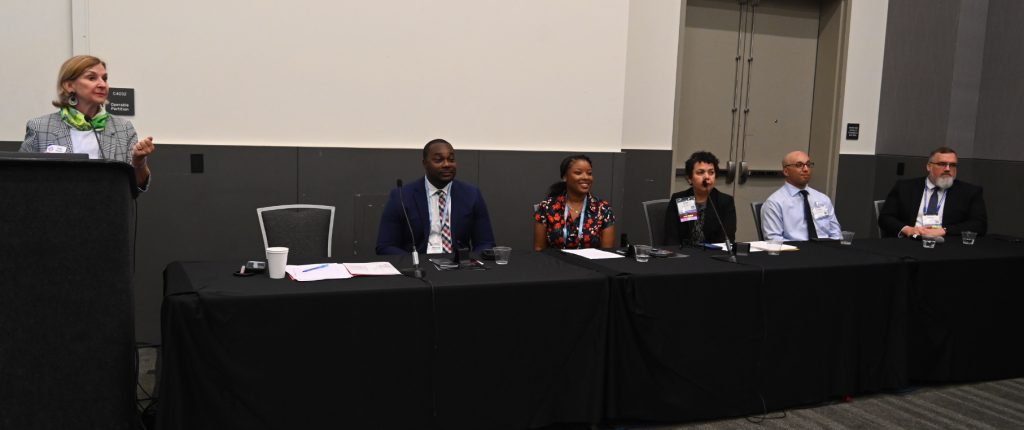Making Public Transit Riders Feel Safer
6/5/2024


There is a perception in some quarters that riding public transit can be dangerous. How are agencies dealing with this largely inaccurate perception? Attendees at the APTA Rail Conference received tips and strategies from some of the top experts in the industry at the Transit Agency Approaches to Personal Security and Public Safety session.
The panel, including “LP” Lavanya Poteau, principal strategic program manager with the Washington Metropolitan Area Transit Authority (WMATA), emphasized building partnerships and forging strong community service teams. WMATA’s Crisis Intervention Team has expanded to eight teams of four, with a police officer backing them to try “to divert calls from police officers,” working across several different shifts. Her partner is Lt. Marcus McIntyre, who lauded the teams. “They go out with passion. They show they go out with a purpose,” he said.
McIntyre encouraged attendees to be diligent with end-of-the-day reports, keeping close track of who the transit agency is serving and successes with getting people help.
For Andrew Wilson, chief safety officer with TriMet in Portland, OR, overcoming rampant drug use in stations was paramount to improving the perception of public safety. His teams carry Narcan “they also carry water bottles, socks, granola bars—just to make connections.” Portland also now has two District Attorneys working with transit officers.
One underutilized resource may be cleaning crews, according to Flora Castillo, president of Pivot Strategies. “If it’s not clean, there is enough perception that the place isn’t safe.”
Creating an increased sense of security takes hard work, and partnerships. Perhaps Detective Freddy Cuevas with host agency the Greater Cleveland Regional Transit Authority said it best when he stressed to the audience, “if we want lasting change, we all have to remove our own ego and ask for help.”
Hallcon sponsored the session.
View more images from the conference here.